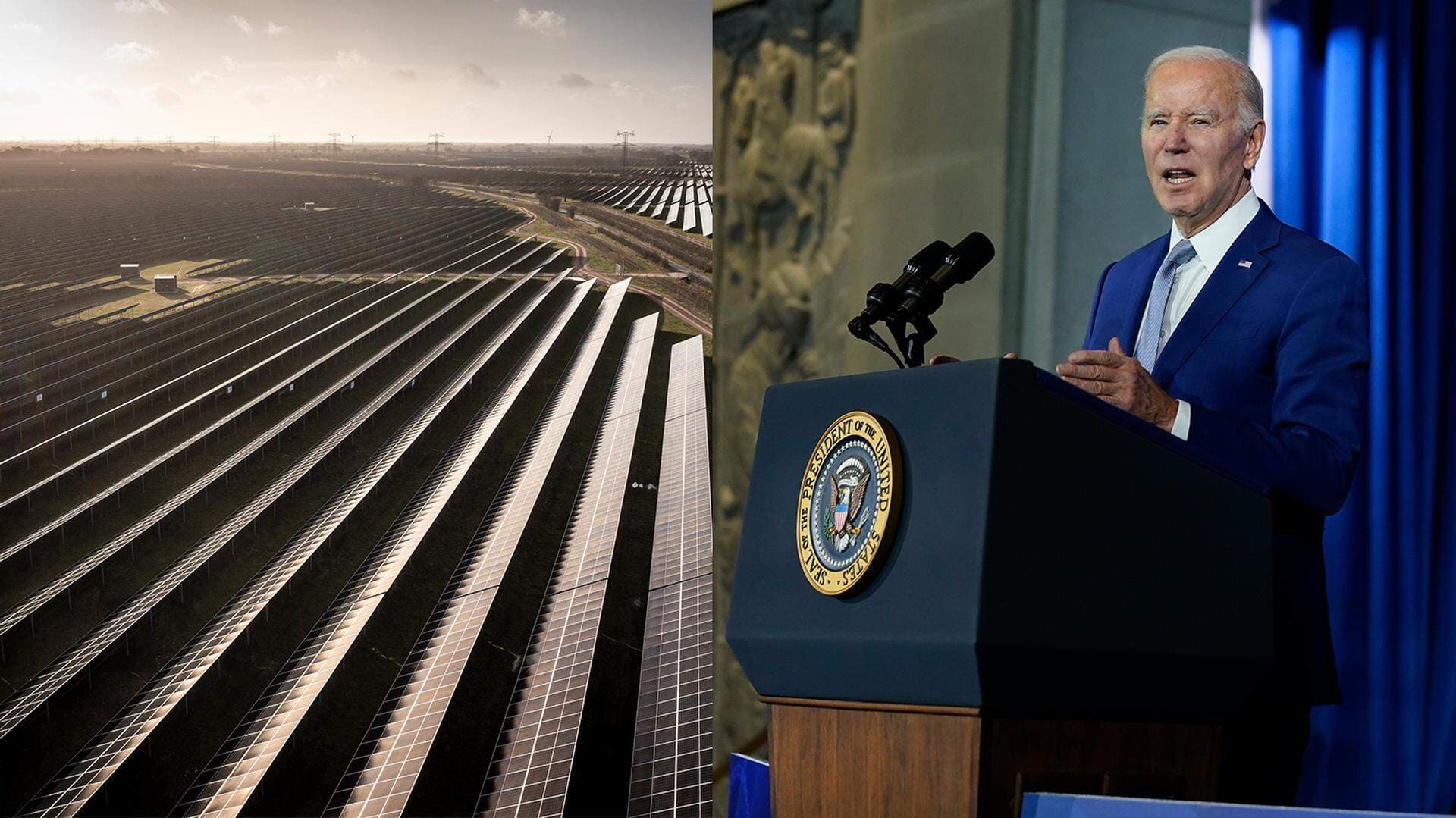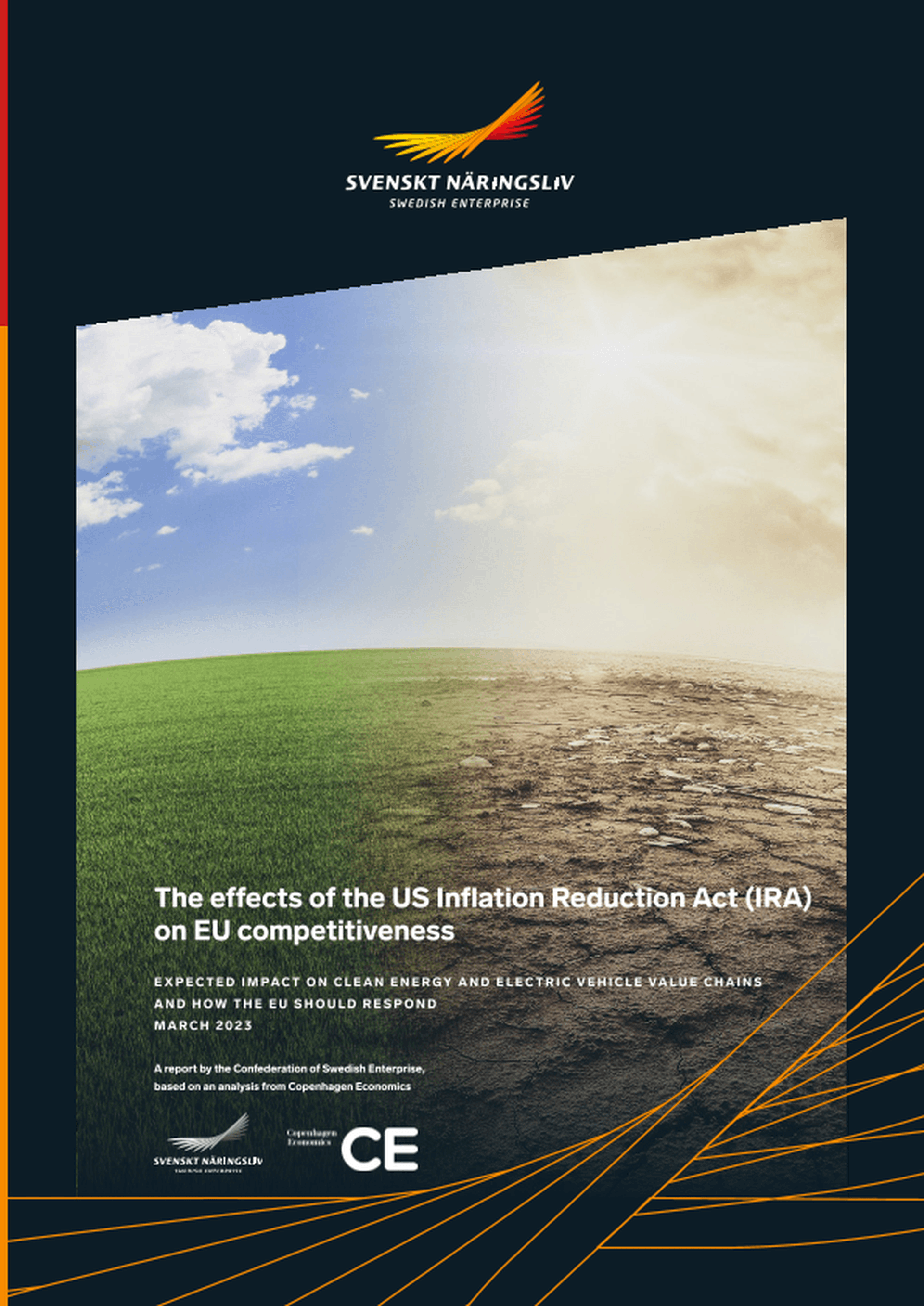New report: The IRA could make the US a clean energy superpower
The US Inflation Reduction Act (IRA) can lead to a sharp fall in the cost of producing clean energy products in the US. This will create new opportunities for EU businesses, but competition will be distorted due to protectionist elements in the IRA. This is one of several conclusions in a new report from the Confederation of Swedish Enterprise and Copenhagen Economics.

The US is now seriously engaged in a transition to a low carbon economy. This must be welcomed. At the same time, many in Europe are concerned about the way the Americans have crafted their policies and fear that well-needed green investments in Europe will flow to the US instead. There are many anecdotes on this, but few facts.
The Confederation of Swedish Enterprise has therefore commissioned a study on the competitiveness effects of the IRA on the EU. The study realized by Copenhagen Economics focuses on the effects in the value chains for clean energy products and electrical vehicles. The study finds that the effects on electrical vehicles are likely to be limited. However, the local content requirements are worrying as they both exclude European companies from the US market and threaten the common principles of non-discrimination agreed in the WTO.
The impact on the clean energy value chain is likely to be very substantial, in particular if the IRA is extended beyond 2031. Clean electricity, especially solar power, as well as hydrogen and electrofuels may receive total subsidies, compounded along the supply chain, which can finance 100% of the production costs. This creates very strong incentives for investment and will likely make the US a clean energy superpower. It creates new business opportunities for EU firms buying cheap, clean energy products from the US, as well as for the European firms that invest in the US. But it is also a cause for concern as the transatlantic market may become severely distorted.
The strong effects will only materialize over time and will be most visible in products that can be traded globally, such as electrofuels. Indirect effects are more uncertain. Investments are also not a zero-sum game – increased investments in the US do not need to be made at the cost of investments in the EU. Therefore, the EU should not overreact.
The Confederation of Swedish Enterprise believes there is no need for a European “answer” in the form of matching subsidies. Instead, the EU should focus on policies that create the best conditions possible for an efficient market driven green transition in Europe. We need to put long-term competitiveness on the agenda and work towards an expanded, technology-neutral clean energy supply, incentivise the green transition with the ETS, shorten the amount of time to obtain permits, invest more in R&D, remove barriers in the Single Market and prioritise open trade with the rest of the world. We should benefit from the IRA when possible and continue our dialogue with the US on the distortive elements in the act but be prepared to deploy defensive measures in the future, if needed.
